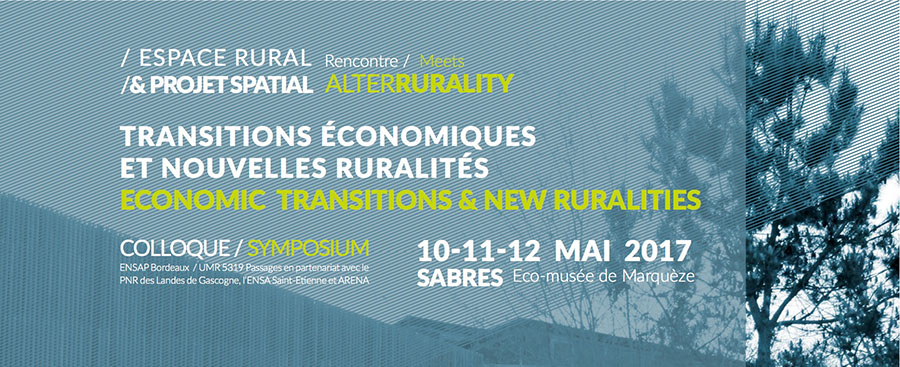SessionsArticulating "spatial scales" of economic transitions Three sessions are scheduled to explore cultural and spatial potential / levers of economic transition in rural areas. In each session, experiments and/or theoretical approaches developed on a specific geographical scale in relation with other spatial and human scales will be debated. Three geographical scales are proposed: Session 1 : micro scale This scale concerns the organisation of home, the domestic space, and the scale of small business. It is linked to economic processes bound to the design and construction of a building. This scale will more specifically focus on short supply chains in implementing buildings, as well as in organising daily life of their inhabitants. It is linked to the emergence of new economic structures that seek to be close to natural, physical, social and energy. Session 2 : meso scale It is the scale of a small community of village or a small town with its nearby network of facilities and services. This scale raises questions regarding town planning regulations and their capacity to integrate specific issues from rural areas and the role of small towns. Session 3 : macro scale In the French context, this scale tackles issues regarding the recent regional reform concerns broadened to a new regional scale. Compared with European metropolitan systems, direction and coherence of this macro scale must be constantly renewed. Lower geographical scales and their interdependence with the macro should be considered simultaneously.
|


